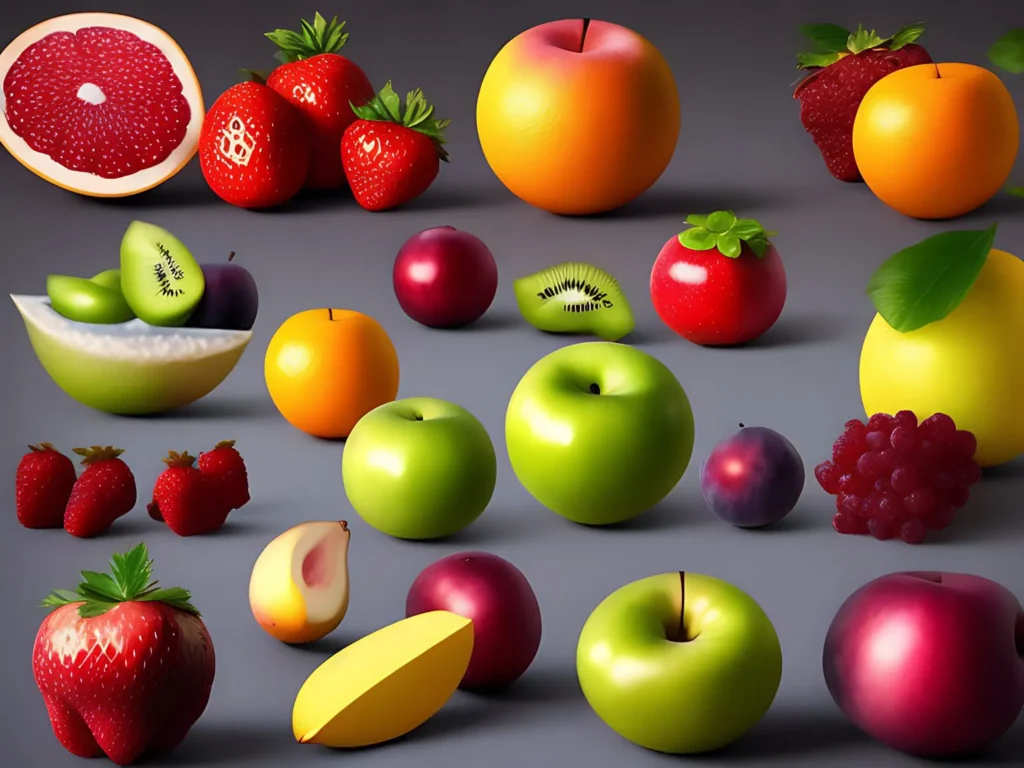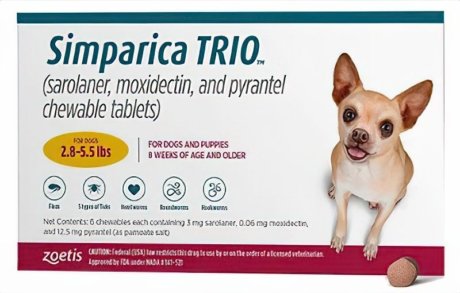What Fruits Can Dogs Eat | 8 Healh Benefits, Risks, Care
As a dog owner, you understand the importance of feeding your pet a well-balanced and healthy food. Although you may be tempted to share your fruit salad with your dog, not all fruits are healthy for dogs to consume. We’ll look at the finest fruits for dogs, What Fruits Can Dogs Eat, their nutritional advantages, and how to include them into your dog’s diet in this complete guide.

The Benefits of Fruits for Dogs
Fruits are rich in vitamins, minerals, and antioxidants, all of which are important for your dog’s general health. Vitamins like C and A assist promote a healthy immune system, while minerals like potassium and magnesium help with muscle and nerve function. Antioxidants such as beta-carotene and lycopene help protect cells from free radical damage.
Fruits can also be a great source of fiber, which can aid in digestion and keep your dog’s bowel movements regular. Additionally, many fruits have a high water content, which can help keep your dog hydrated.
Fruits Dogs Can Eat
While not all fruits are safe for dogs to eat, there are plenty of dog-friendly fruits that can provide a variety of nutritional benefits. Here are some of the best fruits for dogs:

Can Dogs Eat Apples –
Apples contain a lot of fibre, vitamin C, and vitamin A. They also include antioxidants, which can aid in the maintenance of a healthy immune system. When feeding apples to your dog, make sure to remove the seeds and core as they contain cyanide, which may be dangerous to dogs.
Can Dogs Eat Bananas –
Bananas are high in potassium, which promotes healthy muscle and nerve function. They also have vitamin C and B6, which might aid your dog’s immune system. When giving your dog bananas, make sure to remove the peel since it might be difficult for your dog to digest.
Can Dogs Eat Blueberries –
Blueberries are an excellent source of antioxidants, including anthocyanins, which can help protect cells from damage caused by free radicals. They also contain fiber, vitamin C, and vitamin K. You can feed blueberries to your dog either fresh or frozen.
Can Dogs Eat Mangoes –
Mangoes are high in vitamin C, A, and fibre. They also include antioxidants, which can assist promote a healthy immune system. When feeding mangoes to your dog, make sure to remove the peel and pit since they might be difficult for your dog to digest.

Can Dogs Eat Strawberries –
Strawberries are rich with vitamin C, fibre, and antioxidants. They also contain ellagic acid, which has been shown in research on animals to help prevent cancer. Remove the stem and leaves from strawberries before feeding them to your dog, since they might be difficult for your dog to digest.

Fruits Dogs Should Avoid
While there are plenty of fruits that are safe for dogs to eat, there are some that can be toxic and should be avoided. Here are some fruits that you should never feed your dog:
Can Dogs Eat Grapes and Raisins –
Grapes and raisins can be toxic to dogs and can cause kidney failure. Even small amounts can be dangerous, so it’s best to avoid them altogether.
Can Dogs Eat Avocado –
Avocado contains a toxin called persin, which can be harmful to dogs in large amounts. Additionally, the pit and skin can be a choking hazard or cause digestive issues.

Can Dogs Eat Citrus Fruits –
While citrus fruits are not toxic to dogs, they can cause digestive upset and may cause your dog to develop an upset stomach or diarrhea.
How to Incorporate Fruits into Your Dog’s Diet
When incorporating fruits into your dog’s diet, it’s important to do so in moderation. While fruits can provide a variety of nutritional benefits, they should not replace your dog’s regular meals or be the sole source of their nutrition.

Here are some tips for incorporating fruits into your dog’s diet:
- Start small – When introducing fruits to your dog, start with a small amount and gradually increase over time. This will help your dog adjust to the new food and reduce the risk of digestive upset.
- Use as a treat – Fruits can be a great healthy treat for your dog. Instead of giving your dog store-bought treats, try offering them a slice of apple or a few blueberries as a snack.
- Mix with their food – You can also mix small amounts of fruit with your dog’s regular food. This can help add flavor and nutritional benefits to their meals.
- Watch for allergies – Like humans, dogs can develop allergies to certain foods, including fruits. Watch for any signs of an allergic reaction, such as itching, vomiting, or diarrhea. If you suspect your dog is having an allergic reaction, contact your veterinarian.

Conclusion on What Fruits Can Dogs Eat:
Fruits may give your dog with a variety of nutritional advantages, including vitamins, minerals, and antioxidants. However, it is essential to select the proper fruits and feed them in moderation. You can help keep your furry buddy healthy and happy for years to come by following the advice in this article. Always with your veterinarian before making substantial dietary changes for your dog.
- Can Dogs Have Cinnamon | 5 Benefits, Side Effect, Safety
- Can Dogs Eat Avocado | 10 Benefits, Health Issues, Risks
- Can Dogs Eat Potatoes | Nutrition, 8 Benefits, Risk, Health
- Can Dogs Eat Shrimp | 9 Benefits, Health Concerns, Risks
Frequently Asked Questions on What Fruits Can Dogs Eat:
-
Can dogs eat all types of fruit?
No, not all fruits are safe for dogs to eat. Some fruits, such as grapes and raisins, can be toxic and should be avoided. Always research the safety of fruit before giving it to your dog.
-
What fruits are safe for dogs to eat?
Some safe fruits for dogs include apples, bananas, blueberries, mangoes, and strawberries. These fruits provide a variety of nutritional benefits and can be a healthy addition to your dog’s diet.
-
How much fruit should I give my dog?
Fruits should be given in moderation to your dog. Excessive fruit consumption might cause stomach distress and other health problems. As a general guideline, give your dog a tiny quantity of fruit as a treat or add it with their usual diet.
-
Can dogs eat fruit with seeds?
It depends on the fruit. Some fruits, such as apples and pears, have seeds that should be removed before giving them to your dog. Seeds can be a choking hazard or contain toxins that can be harmful to dogs.
-
What should I do if my dog eats a toxic fruit?
If you suspect that your dog has eaten a toxic fruit, contact your veterinarian immediately. Signs of toxicity may include vomiting, diarrhea, lethargy, and loss of appetite. Quick action can help prevent serious health issues.
-
Can dogs eat fruit as a replacement for their regular meals?
No, fruits should not replace your dog’s regular meals or be the sole source of their nutrition. Fruits should be used as a supplement to their regular diet and fed in moderation.
-
What are some signs that my dog is allergic to a fruit?
Signs of an allergic reaction in dogs may include itching, swelling, vomiting, diarrhea, and difficulty breathing. If you suspect your dog is having an allergic reaction, contact your veterinarian immediately.
-
Can puppies eat fruit?
Yes, puppies can eat fruit in moderation. However, it’s important to consult with your veterinarian before introducing any new foods to their diet.
-
Can dogs eat fruit as a diabetic diet?
While fruits can be a healthy addition to a dog’s diet, they should be given in moderation if your dog has diabetes. Fruits contain natural sugars that can raise blood sugar levels, so it’s important to work with your veterinarian to develop a diabetic diet plan that meets your dog’s specific needs.
-
Can dogs eat canned or dried fruit?
Canned or dried fruit may contain added sugars or preservatives that can be harmful to dogs. Always check the label and make sure that the fruit is safe for dogs before feeding it to them.
-
Can dogs eat fruit if they have a sensitive stomach?
Some dogs may have a sensitive stomach and may not be able to tolerate certain fruits. If your dog has a sensitive stomach, start with small amounts of fruit and monitor their reaction. If they experience any digestive upset, avoid giving them that fruit in the future.
-
Can dogs eat fruit if they have kidney disease?
If your dog has kidney disease, it’s important to consult with your veterinarian before introducing any new foods to their diet. Some fruits may be high in potassium or phosphorus, which can be harmful to dogs with kidney disease.
-
Can dogs eat fruit if they have cancer?
Fruits may be a nutritious supplement to a cancer-stricken dog’s diet. Some fruits, such as blueberries and strawberries, contain antioxidants that may help enhance the immune system. However, it is critical to speak with your veterinarian before developing a nutrition plan that matches your dog’s individual needs.
-
Can dogs eat fruit if they are overweight?
Fruits might be a healthy alternative to store-bought treats if your dog is overweight. However, it is essential to feed them in moderation and collaborate with your veterinarian to establish a weight reduction strategy that is tailored to your dog’s individual requirements.
-
Can dogs eat fruit if they are on a raw food diet?
Fruits can serve as a nutritious supplement to your dog’s raw food diet. However, it is important to check the fruit’s safety and ensure that it is properly cooked before feeding it to your dog. Working with a veterinarian or a canine nutritionist is also recommended to verify that your dog’s raw food diet fits their nutritional needs.
Recommended related to What Fruits Can Dogs Eat:
Can Dogs Eat Pasta | Causes, Benefits, Health Risks
Can Dogs Eat Hot Dogs | 5 Risks, Health Issues, Benefits





























